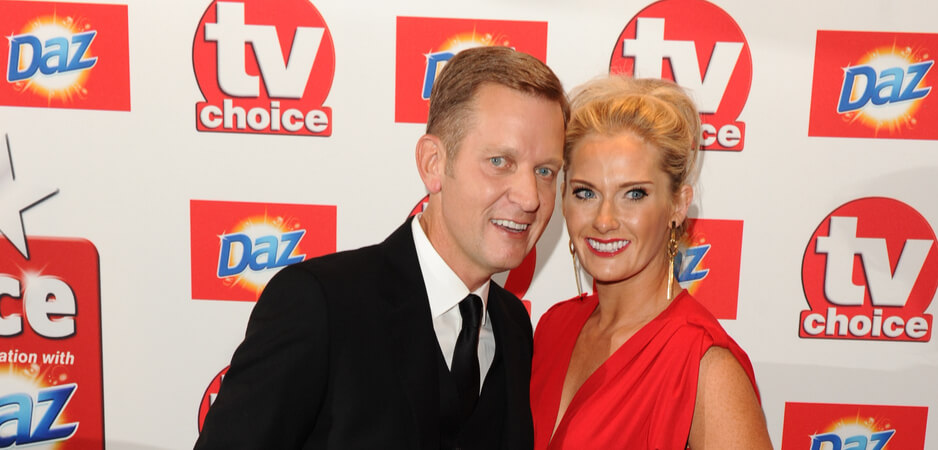The suicides linked with The Jeremy Kyle Show and the similarly unscripted Love Island have occasioned a debate over the effects of reality television.
Imagine pitching an idea for a show to a TV executive in, say, 2000: “I want to gather a bunch of people who are multi-dysfunctional and sit them in front of cameras with a live studio audience, get them to talk about their personal lives, reprimand them about their moral laxity, then treat them to counseling and maybe a spell in rehab.”
“You have got to be kidding!” might be the understandable response. “Who’d want to watch a bunch of losers bitching with each other about who’s been screwing whom?” You snap back: “Haven’t you seen this guy Jerry Springer? He’s got people pouring out their innermost secrets while audiences just whoop and laugh. It’s like a confessional but, instead of a solitary priest, you get millions of strangers all judging you.”
“Be serious. Do you actually think people will voluntarily come on your show, talk about how their partners have been having sex with their smack-head brother behind their back and have got pregnant and are now trying to claim custody of the baby?”
Jeremy Kyle had answers. Somehow, he managed to persuade the British channel, ITV, to make his show, which launched in 2005. It was a spectacular success, attracting a million daytime viewers every weekday. The show’s rehabilitative and therapeutic gloss was provided by a resident psychotherapist and medical adviser. It would also feature polygraph testing to determine, or at least indicate, parentage.
Ostensibly, The Jeremy Kyle Show tried to repair damaged relationships by inviting the parties to said relationships to talk through their issues as candidly as they could. At the outset, no one could have predicted just how candid they were prepared to be; so much so that emotions frequently got out of control and violent scenes broke out. Kyle’s security team was always on set. Sex, drugs, religion, midlife crises, more sex — they were all up for discussion.
Audiences wolfed it down, though not merely as consumers. One of the lessons Springer had taught was that most members of the audience would have gladly leapt onto the stage and divulged their innermost secrets given the chance. That was the kind of quid pro quo: You can scoff away, but you might be next.
Crass Embarrassment
Critics who accused The Jeremy Kyle Show of being embarrassing, crass, foul-mouthed and unutterably mortifying were probably right. But audiences loved it. This was TV’s equivalent of misery literature, the genre that dwells on people’s efforts to overcome abuse or the effects of trauma. But it was something else: For all its conspicuous faults, Kyle’s show contrived to provide a reflection of a society in which people were not inhibited by the presence of strangers and, in a slightly perverse way, felt licensed, perhaps even empowered, by the opportunity to share their secrets with people they don’t know.
OK, the audience’s thoughts were probably on the prurient side, but, in the context of today’s celebrity culture, voyeurism has become — to use a term of today — normalized. Our appetite for absorbing accounts of others’ miseries is matched by our propensities to describe them. We live in an environment in which public confession is entertainment. This doesn’t necessarily mean we’re spiritually and morally bankrupt, even though many would insist this is the case. It means that we’ve become accustomed to sharing — we do it all the time on social media. Staring at the TV while others turn themselves into human exhibits is not so far removed.
Now the show has gone and the suicides linked with Kyle’s show and the similarly unscripted Love Island have occasioned a debate over the effects of reality television. Once likened to bear baiting, reality shows are actually closer to the freak shows that were once part of traveling fairgrounds and allowed the public to observe, and presumably talk about, aberrantly developed people or animals. Some of the most popular series in this genre have followed the exploits of the poor. Their names — Benefits Street, The Great British Benefits Handout and Benefits Britain — are clues to their content.
Do the Right Thing
ITV is a responsible organization and did have safeguards in place for anyone participating on the show. Many — including a UK Parliamentary committee — are now questioning whether these were enough. Other broadcasters will probably retain advisers to brief them on what to expect, what areas of their life are likely to be discussed and the likely content of their responses. Perhaps more importantly, they will also have specialists to debrief them on how a single appearance on a reality show will almost certainly change the way people react to them, whether in a supermarket, a bar, on a train, or practically anywhere.
Many onlookers will gawp, while others will address them with something like, “Hey, I saw you on TV, didn’t it I? Well done. I thought it was brave of you to talk about your problems so openly.” Others will address them less charitably, maybe even abusively. The uncertainty of how others, especially strangers, will behave toward ex-reality show participants is probably a discomfort to most. Others luxuriate in the minor celebrity status, at least while it lasts.
But the suspicion lingers: Do we genuinely find listening to the heartbreaking stories of others’ misfortunes amusing? Judging by the success of these shows, the answer is discouragingly affirmative. Do television companies encourage us? Again, yes.
Has ITV done the right thing? Yes. And the decision probably wasn’t a hard one to take. Despite its popularity, The Jeremy Kyle Show currently doesn’t appear in the channel’s 50 most viewed programs. It accounts for about 1% of ITV’s total advertising revenue. The daytime demographic isn’t as desirable to advertisers as the evening one. So, from a financial perspective, canceling the show isn’t catastrophic.
Morally? ITV can’t change the face of television any more than it can stop people finding this type of entertainment rewarding. We’ve become guiltless eavesdroppers, peeping toms, nosey parkers who find involving ourselves in other people’s private lives rewarding. That won’t change with a cancelation of The Jeremy Kyle Show. What will change is broadcasters’ hitherto untroubled enthusiasm for such shows. Now they come with a warning and every channel will consider carefully the cost-benefit calculus. This won’t be the end of reality TV, but it will be the beginning of the end for those shows that specialize in exposing the despair and wretchedness of others’ lives for an audience’s delectation.
*[Ellis Cashmore’s book, Kardashian Kulture, will be published later this year.]
The views expressed in this article are the author’s own and do not necessarily reflect Fair Observer’s editorial policy.
Support Fair Observer
We rely on your support for our independence, diversity and quality.
For more than 10 years, Fair Observer has been free, fair and independent. No billionaire owns us, no advertisers control us. We are a reader-supported nonprofit. Unlike many other publications, we keep our content free for readers regardless of where they live or whether they can afford to pay. We have no paywalls and no ads.
In the post-truth era of fake news, echo chambers and filter bubbles, we publish a plurality of perspectives from around the world. Anyone can publish with us, but everyone goes through a rigorous editorial process. So, you get fact-checked, well-reasoned content instead of noise.
We publish 2,500+ voices from 90+ countries. We also conduct education and training programs
on subjects ranging from digital media and journalism to writing and critical thinking. This
doesn’t come cheap. Servers, editors, trainers and web developers cost
money.
Please consider supporting us on a regular basis as a recurring donor or a
sustaining member.
Will you support FO’s journalism?
We rely on your support for our independence, diversity and quality.







